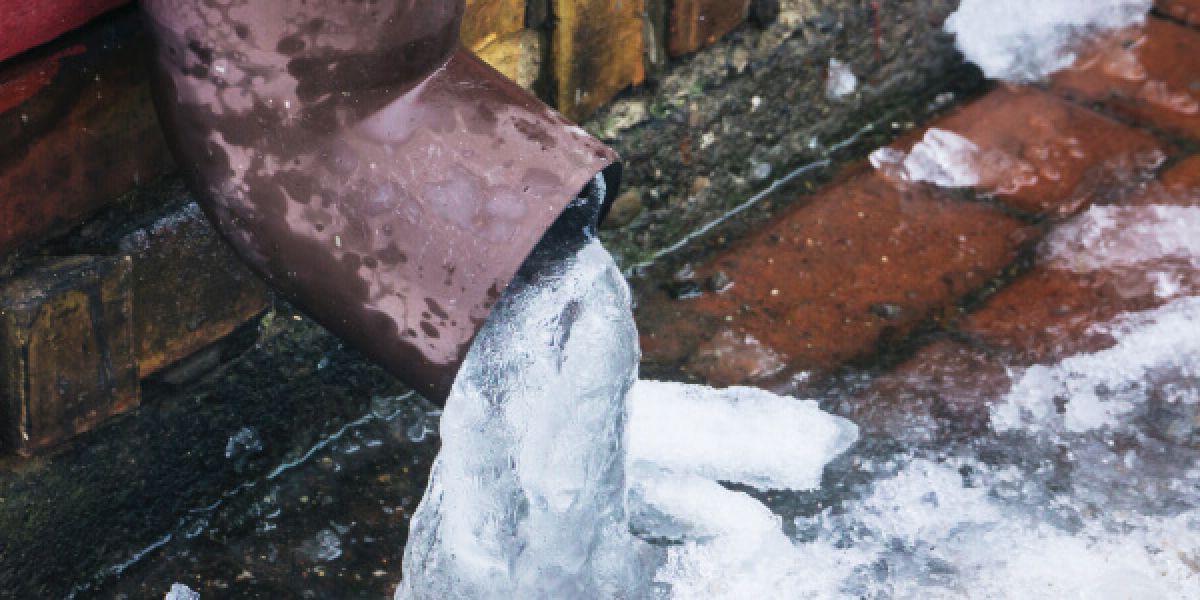Protecting Against Frozen Plumbing in Winter: Professional Advice
Protecting Against Frozen Plumbing in Winter: Professional Advice
Blog Article
Just about everyone has got their own unique concepts in relation to Prevent Frozen Pipes .

Cold weather can damage your plumbing, especially by freezing pipelines. Right here's just how to avoid it from taking place and what to do if it does.
Introduction
As temperature levels decrease, the threat of icy pipelines boosts, potentially causing pricey repairs and water damages. Comprehending just how to stop icy pipes is crucial for homeowners in cold climates.
Avoidance Tips
Protecting vulnerable pipes
Wrap pipelines in insulation sleeves or utilize heat tape to protect them from freezing temperature levels. Focus on pipelines in unheated or outside areas of the home.
Home heating techniques
Maintain interior spaces adequately heated up, especially locations with pipes. Open closet doors to allow cozy air to circulate around pipes under sinks.
Just how to identify icy pipelines
Look for reduced water circulation from faucets, unusual odors or sounds from pipelines, and noticeable frost on subjected pipes.
Long-Term Solutions
Architectural modifications
Consider rerouting pipelines away from outside walls or unheated locations. Add added insulation to attics, cellars, and crawl spaces.
Upgrading insulation
Buy top notch insulation for pipes, attic rooms, and walls. Appropriate insulation aids preserve regular temperatures and minimizes the risk of frozen pipelines.
Protecting Outside Pipes
Garden hose pipes and exterior taps
Disconnect and drain yard tubes before winter season. Set up frost-proof faucets or cover exterior faucets with insulated caps.
Comprehending Icy Pipelines
What creates pipelines to ice up?
Pipelines ice up when revealed to temperature levels listed below 32 ° F (0 ° C) for extended periods. As water inside the pipelines ices up, it increases, taxing the pipeline wall surfaces and possibly triggering them to break.
Threats and problems
Frozen pipelines can cause water system disturbances, building damage, and pricey repairs. Burst pipelines can flood homes and create considerable architectural damages.
Indications of Frozen Pipes
Identifying icy pipelines early can prevent them from bursting.
What to Do If Your Pipelines Freeze
Immediate activities to take
If you suspect frozen pipes, keep faucets open up to alleviate pressure as the ice melts. Use a hairdryer or towels soaked in hot water to thaw pipes slowly.
Conclusion
Preventing frozen pipelines calls for positive procedures and quick reactions. By understanding the reasons, indications, and preventive measures, homeowners can protect their pipes during winter.
Helpful Tips to Prevent Frozen Pipes this Winter
UNDERSTANDING THE BASICS: WHY PIPES FREEZE AND WHY IT’S A PROBLEM
Water freezing inside pipes is common during the winter months, but understanding why pipes freeze, and the potential problems it can cause is crucial in preventing such incidents. This section will delve into the basics of why pipes freeze and the associated problems that may arise.
THE SCIENCE BEHIND FROZEN PIPES
When water reaches freezing temperatures, it undergoes a physical transformation and solidifies into ice. This expansion of water as it freezes is the primary reason pipes can burst. As the water inside the pipe freezes, it expands, creating immense pressure on the walls. If the pressure becomes too great, the pipe can crack or rupture, leading to leaks and water damage.
FACTORS THAT CONTRIBUTE TO PIPE FREEZING
Low Temperatures: Extremely cold weather, especially below freezing, increases the risk of pipes freezing. Uninsulated or Poorly Insulated Pipes: Pipes located in unheated areas, such as basements, crawl spaces, or attics, are more prone to freezing. Insufficient insulation or lack of insulation altogether exacerbates the problem. Exterior Wall Exposure: Pipes running along exterior walls are susceptible to freezing as they encounter colder temperatures outside. Lack of Heating or Temperature Regulation: Inadequate heating or inconsistent temperature control in your home can contribute to frozen pipes. PROBLEMS CAUSED BY FROZEN PIPES
- Pipe Bursting: As mentioned earlier, the expansion of water as it freezes can cause pipes to burst, resulting in significant water damage.
- Water Damage: When pipes burst, it can lead to flooding and water damage to your property, including walls, ceilings, flooring, and personal belongings.
- Structural Damage: Prolonged exposure to water from burst pipes can compromise the structural integrity of your home, leading to costly repairs.
- Mold and Mildew Growth: Excess moisture from water damage can create a favorable environment for mold and mildew growth, posing health risks to occupants.
- Disrupted Water Supply: Frozen pipes can also result in a complete or partial loss of water supply until the issue is resolved.
WHY CERTAIN PIPES ARE MORE PRONE TO FREEZING
- Location: Pipes located in unheated or poorly insulated areas, such as basements, crawl spaces, attics, or exterior walls, are at higher risk of freezing.
- Exterior Pipes: Outdoor pipes, such as those used for irrigation or exposed plumbing, are particularly vulnerable to freezing as they are directly exposed to the elements.
- Supply Lines: Pipes that carry water from the main water supply into your home, including the main water line, are critical to protect as freezing in these lines can affect your entire plumbing system.
- Underground Pipes: Pipes buried underground, such as those connected to sprinkler systems or outdoor faucets, can be susceptible to freezing if not properly insulated.
https://busybusy.com/blog/helpful-tips-to-prevent-frozen-pipes-this-winter/
:strip_icc()/snow-outdoor-faucet-pipes-4af65d1e5e904fb1aa7bf74071fe5d89.jpg)
Hopefully you enjoyed reading our piece about Winter Plumbing Precautions: Preventing Frozen Pipes. Thanks a ton for finding the time to read through our blog. Sharing is nice. Who knows, you will be doing someone a favor. I recognize the value of your readership.
Book Today Report this page